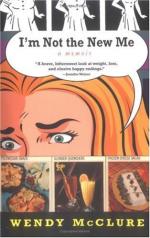Of course, owing to the state of our copyright laws at that time, all this foreign publication was piratical; and most of it brought no visible consequence to the author, beyond that cold tribute to personal vanity on which our unlucky race is expected to feed. I should make an exception. The house of Sampson, Low and Company honorably offered me, at a very early date, a certain recognition of their editions. Other reputable English houses since, in the case of succeeding books, have passed contracts of a gentlemanly nature, with the disproportionately grateful author, who was, of course, entirely at their mercy. When an American writer compares the sturdy figures of the foreign circulation with the attenuated numerals of such visible returns as reach him, he is more puzzled in his mind than surfeited in his purse. But the relation of foreign publishers to “home talent” is an ancient and honorable conundrum, which it is not for this paper or its writer to solve.
Nevertheless, I found the patent medicine “Gates Ajar” delicious, and used to compare it with Messrs. Fields and Osgood’s edition de luxe with an undisguised delight, which I found it difficult to induce the best of publishers to share.
Like most such matters, the first energy of the book had its funny and its serious side. A man coming from a far Western village, and visiting Boston for the first time, is said to have approached a bartender, in an exclusive hotel, thus confidentially:
“Excuse me, but I am a stranger in this part of the country, and I want to ask a question. Everywhere I go, I see posters up like this—’The Gates Ajar!’ ‘The Gates Ajar!’ I’m sick to death of the sight of the durn thing; I haven’t darst to ask what it is. Do tell a fellar! Is it a new kind of drink?”
There was a “Gates Ajar” tippet for sale in the country groceries; I have fancied that it was a knit affair of as many colors as the jewels in the eternal portals, and extremely openwork. There was a “Gates Ajar” collar—paper, I fear—loading the city counters. Ghastly rumors have reached me of the existence of a “Gates Ajar” cigar. I have never personally set my eyes upon these tangible forms of earthly fame. If the truth must be told, I have kept a cowardly distance from them. Music, of course, took her turn at the book, and popular “pieces” warbled under its title. One of these, I think, is sung in Sunday-schools to this day. Then there was, and still exists, the “Gates Ajar” funeral piece. This used to seem to me the least serious of them all; but, by degrees, when I saw the persistence of force in that elaborate symbol, how many mourning people were so constituted as to find comfort in it, I came to have a tolerance for it which even grows into a certain tenderness. I may frankly admit that I have begun to love it since I heard about the two ragged little newsboys who came to the eminent city florist, with all their savings clenched in their grimy fists, and thus made known their case:




